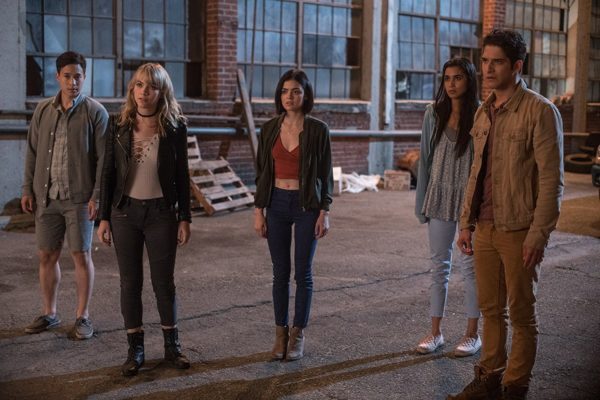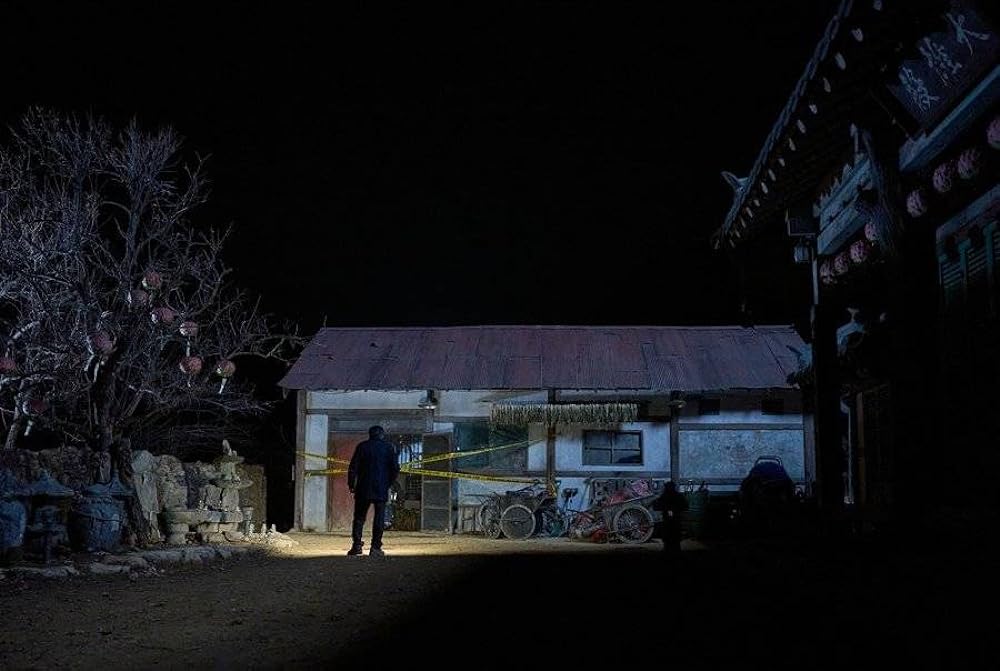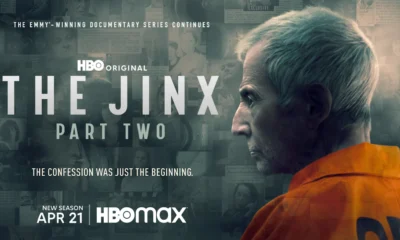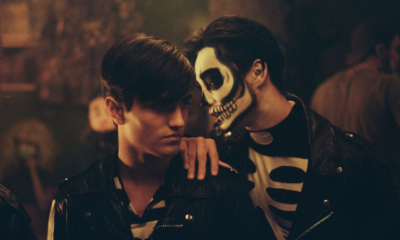News
Tokenism, Coding, Baiting, and a Few Other Things LGBTQ Horror Fans are Over, Part 1

It’s 2019! All is well and right with the world and representation and diversity is the rule and things like tokenism don’t happen anymore!
Wait…that’s not right.
Oh yeah, it’s 2019 and queer-coding, queer-baiting, tokenism, and a whole host of negative stereotypes surrounding the queer community are still the order of the day.
Oh sure, we’ve seen a handful of decent examples in recent years, but by and large, those have come from independent films with no major backing and no wide release, many of which slip into obscurity–not for lack of trying on those filmmakers parts, mind you. I know a lot of those men and women out there busting their tails to get their films to a larger audience and I respect and applaud them for it.
At the same time, a large percentage of the queer people I know love horror films. It’s their preferred genre. So why is it that we can’t get a decent queer portrayal in the genre we love?
Right now some of our straight readers are wondering what the hell some of those terms I mentioned mean, and I promise we’re getting to that. First, though I would like for you, specifically, to imagine something for me.
Ready?
Imagine there’s a genre of movies you love. Let’s say, horror. You like the scares. You like the tension. Heck, you even like the villains!
Now imagine never seeing yourself, and by yourself I mean someone who looks and loves like you, on the screen in those movies. You never see a guy kiss a girl unless it’s a stunt. You never see a straight man or woman portrayed as a real person.
You are never the hero.
On occasion, there’s a character with traits that kind of, maybe, make you think they might be straight. You watch the way they walk, their mannerisms, the way that they express themselves, and your heart races because “oh-my-god, I think they’re really straight but the filmmaker just didn’t come out and say it.”
Most of the time, that character is the villain.
Take it further and imagine that you’ve been hearing about this horror movie where–gasp!–there’s an actual straight character in the film! You rush out to the theater; you’re invested in this movie and even more in the character. They are, finally, revealed to be straight! Then they die 2.5 seconds later, or worse they become a stereotype of who straight people are.
If you can imagine, fully, that world I’m describing, then you’re beginning to understand why countless queer genre fans get frustrated with the movies and the people making them.
Now, lets get started with the first of those terms I mentioned before.
Tokenism
Tokenism is defined in the dictionary as “the practice of making only a perfunctory or symbolic effort to do a particular thing, especially by recruiting a small number of people from underrepresented groups in order to give the appearance of sexual or racial equality.”
This practice, especially in the U.S. grew out of a response to desegregation laws wherein an employer would hire one black employee for a basic, low-wage job in order to give the appearance that they were acting in accordance with the law.
This one happens a lot not only with queer characters but also with a multitude of racial minorities on the screen in the genre.
It’s easy to spot a token character. You look for, generally, the one out and proud queer character on screen who is obviously going through the process of coming out and having some kind of feelings about it. You might, but probably don’t, give them long enough to be an established part of the group. Then you kill them.
Sometimes, the writers of these films will even go so far as to try to trick you into believing that what you’re seeing isn’t a token character–they’re getting better at this.
Let’s take, for example, 2018’s Truth or Dare. The film centers on a group of college students who find themselves on the bad side of the world’s most cursed game of truth or dare.
One of those students is a young man by the name of Brad Chang, and he just happens to be gay. That’s right! Not only is he gay, but he’s also Asian! I’m checking off boxes already!

Things start off pretty great, actually. Brad’s out; his friends are supportive. He’s just one of the gang. In fact, the only person who doesn’t know about Brad is his police officer dad.
Now, this whole game is all about exposing your deepest, darkest secrets, so naturally, before this is all over, Brad finds himself having to out himself to his dad, which he does off screen. I watched with relief as Brad comes back and tells his friends that his dad took the news well.
They almost had me.
Brad gets a new dare: Take your father’s sidearm and force him to beg for his life.
Naturally, we had to take what is honestly one of the hardest things we do as queer people and heighten it, and the writers felt like we needed to dig into that wound all over again.
There’s no way that father and son had time to emotionally process what Brad coming out meant to them. We know this because as Brad holds his father at gunpoint, his father tells him, “I’m sorry for how hard I’ve been on you. I guess you think I deserve this.”
What else was he going to think when his son who just came out to him pulls a gun on him? Before anything can be resolved, Brad is shot down by another officer.
I hear you saying, so many people are dying in this movie. Why does this one matter?
It matters because his death was inherently tied up in his sexuality. It matters because he was the only queer character in the film, and it matters for one more reason, which is tied up in the rules of the game.
You see if you were dared you had to do the dare. If you chose truth, you had to tell the whole truth. Failing to follow through brings death. Everyone else who did this survived. Every single one. Not Brad.
Brad died while doing what he was supposed to be doing, and while you might think it’s nitpicking the film’s logic, for most of us in the queer community or any other marginalized group, there is a ringing truth here.
We can do everything that is asked of us. We can follow the rules just like those outside the community, and it still isn’t good enough to appease those that don’t want us seen at all.
In a recent interview with queer filmmaker named Sam Wineman which we posted yesterday, he told me this, “People ask all the time when it’s okay to kill queer characters in horror films. I feel like the answer is when we start letting them live.”
I know I’ve spent a lot of time on this particular film. Some of you probably stopped reading long ago, but for those who have stuck it out, this is just one recent example of tokenism. I’m sure, if you put your mind to it, you could come up with others. Go back up and read that definition from earlier.
Now think on this:
How many times have you seen the fetishized lesbian who serves no purpose beyond titillating the male demographic and adding to the body count?
How many times have you seen the over-the-top gay man who checks off every single stereotype box you can think of and dies because he doesn’t know how to fight?
How many times have you seen a queer character was was introduced into the film and died less than ten minutes later?
Now go back, put the shoe on the other foot, and imagine if everything I listed here was about you.
Part two of this three part series of articles will be coming in a couple of days. Until then, stay scary and Happy Pride!
Listen to the 'Eye On Horror Podcast'

News
This Horror Film Just Derailed a Record Held by ‘Train to Busan’

The South Korean supernatural horror film Exhuma is generating buzz. The star-studded movie is setting records, including the derailment of the country’s former top-grosser, Train to Busan.
Movie success in South Korea is measured by “moviegoers” instead of box office returns, and of this writing, it has garnered over 10 million of them which surpasses the 2016 favorite Train to Busan.
India’s current events publication, Outlook reports, “Train to Busan previously held the record with 11,567,816 viewers, but ‘Exhuma’ has now achieved 11,569,310 viewers, marking a significant feat.”
“What’s also interesting to note is that the film achieved the impressive feat of reaching 7 million moviegoers in less than 16 days of its release, surpassing the milestone four days quicker than 12.12: The Day, which held the title of South Korea’s top-grossing box office hit in 2023.”

Exhuma’s plot isn’t exactly original; a curse is unleashed upon the characters, but people seem to love this trope, and dethroning Train to Busan is no small feat so there has to be some merit to the movie. Here’s the logline: “The process of excavating an ominous grave unleashes dreadful consequences buried underneath.”
It also stars some of East Asia’s biggest stars, including Gong Yoo, Jung Yu-mi, Ma Dong-seok, Kim Su-an, Choi Woo-shik, Ahn So-hee and Kim Eui-sung.

Putting it in Western monetary terms, Exhuma has raked in over $91 million at the worldwide box office since its February 22 release, which is almost as much as Ghostbusters: Frozen Empire has earned to date.
Exhuma was released in limited theaters in the United States on March 22. No word yet on when it will make its digital debut.
Listen to the 'Eye On Horror Podcast'
Movies
Watch ‘Immaculate’ At Home Right Now

Just when we thought 2024 was going to be a horror movie wasteland, we got a few good ones in succession, Late Night With the Devil and Immaculate. The former will be available on Shudder starting April 19, the latter just had a surprise drop on digital ($19.99) today and will be getting physical on June 11.
The film stars Sydney Sweeney fresh off her success in the rom-com Anyone but You. In Immaculate, she plays a young nun named Cecilia, who travels to Italy to serve in a convent. Once there, she slowly unravels a mystery about the holy place and what role she plays in their methods.
Thanks to word of mouth and some favorable reviews, the movie has earned over $15 million domestically. Sweeney, who also produces, has waited a decade to get the film made. She purchased the rights to the screenplay, reworked it, and made the film we see today.
The movie’s controversial final scene wasn’t in the original screenplay, director Michael Mohan added it later and said, “It is my proudest directorial moment because it is exactly how I pictured it. “
Whether you go out to see it while it’s still in theaters or rent it from the convenience of your couch, let us know what you think of Immaculate and the controversy surrounding it.
Listen to the 'Eye On Horror Podcast'
Movies
Politician Spooked By ‘First Omen’ Promo Mailer Calls Police

Incredibly, what some people thought they would get with an Omen prequel turned out to be better than anticipated. Maybe it’s partly due to a good PR campaign. Maybe not. At least it wasn’t for a pro-choice Missouri politician and film blogger Amanda Taylor who received a suspicious mailer from the studio ahead of The First Omen’s theatrical release.
Taylor, a Democrat running for Missouri’s House of Representatives, must be on Disney’s PR list because she received some eerie promo merch from the studio to publicize The First Omen, a direct prequel to the 1975 original. Usually, a good mailer is supposed to pique your interest in a film not send you running to the phone to call the police.
“I was freaking out,” says the blogger who filed a police report about #TheFirstOmen PR. “My husband touched it, so I’m screaming at him to wash his hands.” The studio, for its part, regrets frightening anyone but notes that “most people had fun with it” https://t.co/9vq7xfD8kI pic.twitter.com/9KUMgvyG2Q
— The Hollywood Reporter (@THR) April 13, 2024
According to THR, Taylor opened the package and inside were disturbing children’s drawings related to the film that freaked her out. It’s understandable; being a female politician against abortion it’s no telling what kind of threatening hate mail you’re going to get or what might be construed as a threat.
“I was freaking out. My husband touched it, so I’m screaming at him to wash his hands,” Taylor told THR.
Marshall Weinbaum, who does Disney’s public relations campaigns says he got the idea for the cryptic letters because in the movie, “there are these creepy drawings of little girls with their faces crossed out, so I got this idea to print them out and mail them to the press.”
The studio, maybe realizing the idea wasn’t their best move, sent out a follow-up letter explaining that it was all in good fun to promote The First Omen. “Most people had fun with it,” adds Weinbaum.
While we can understand her initial shock and concern being a politician running on a controversial ticket, we have to wonder as a film enthusiast, why she wouldn’t recognize a crazy PR stunt.
Perhaps in this day and age, you can’t be too careful.
Listen to the 'Eye On Horror Podcast'
-

 Trailers5 days ago
Trailers5 days agoJames McAvoy Captivates in the New Trailer for ‘Speak No Evil’ [Trailer]
-

 Trailers7 days ago
Trailers7 days ago‘Joker: Folie à Deux’ Official Teaser Trailer Releases And Showcases Joker Madness
-

 Movies6 days ago
Movies6 days agoSam Raimi Produced Horror Film ‘Don’t Move’ Is Headed To Netflix
-

 Trailers4 days ago
Trailers4 days agoWatch the trailer for ‘Under Paris,’ the movie people are calling ‘French Jaws’ [Trailer]
-

 Trailers6 days ago
Trailers6 days ago“The Contestant” Trailer: A Glimpse into the Unsettling World of Reality TV
-

 News6 days ago
News6 days ago“The Crow” Reboot Delayed to August & “Saw XI” Postponed to 2025
-

 Movies6 days ago
Movies6 days agoBlumhouse & Lionsgate to Create New ‘The Blair Witch Project’
-

 Trailers6 days ago
Trailers6 days agoHBO’s “The Jinx – Part Two” Unveils Unseen Footage and Insights Into Robert Durst Case [Trailer]





















You must be logged in to post a comment Login